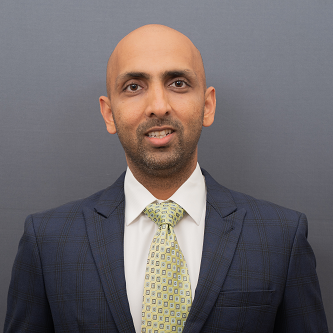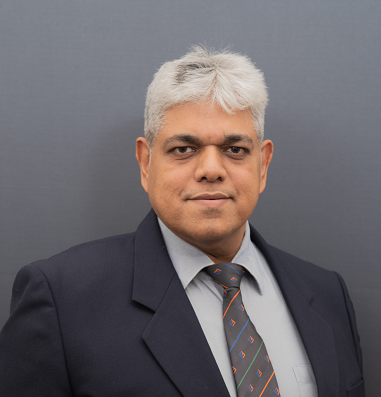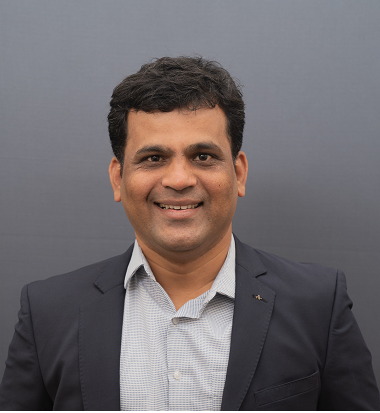
A major task today is getting the right handover from your developer/builder to the Residential Association/Society to ensure that there are no obstacles in the future. Let’s look at a comprehensive handover checklist that you need to cover in this process.
The first point to note is that every housing society has some common areas and as per the RERA (Real Estate Regulation and Development Act) the builder is accountable for giving basic society maintenance services to the residents; these charges though quite feasible are billed to the residents.
Formation of the Resident Welfare Association:
The process of taking over from the builder first begins with the formation of the society’s Resident Welfare Association (RWA), only once this is formed the maintenance work can be handed over by the builder.
Documentation Handover:
Once the RWA is formed and the handover process begins it is essential that they demand all the documentation from the builder for the building. This is probably the most important point as once the builder has done the handover to the society, any future compliances of the building will fall under the society’s responsibility. Hence ensuring they have the following documents is critical:
• Occupancy Certificate: Completion and Occupancy Possession certificates is proof from the builder that the building is completed as per the approved plan and government compliances. If the builder is unable to provide you with these certificates, then either the building laws are violated or deviated from the original construction plans. Either way, it’s illegal to occupy a building/apartment that does not have an occupancy certificate
• NOC Certificate: A No Objection Certificate (NOC) is issued where there is no objection to the covenants of the certificate. A builder has to compulsory submit an NOC from the fire safety, water, and pollution departments to the RWA (Residents Welfare Association).
Additional Documents:
Make a note of the below-mentioned documents as well as they are also a mandatory requirement in a handover –
• Original registration documents
• Audited accounts documents
• Tax-related documents
• Property Insurance details
• Conveyance of property
• Handover of the Corpus fund
• Contracts with vendors
• Approved floor plans
• Car parking allocation record
• Clearance to operate Elevators
• Invoices and Warranties (Pumps, Generator, Transformer, Pool and Gym Equipment, Lift, etc.)
• Architectural and Structural Drawings (Electrical wiring, water piping, etc.)
• AMC Documents (Lift, Generator, Transformer, etc.)
• Maintenance schedule for all the assets
• Staff schedule
• List of amenities offered
• List of services offered post the handover
Besides the certificates and documents, let’s have a look at other areas as well that are important with respect to the handover.
Selecting the right Facility Management Firm:
The next step towards ensuring a smooth transition is the RWA selecting the right Facility Management (FM) firm to maintain the building in the future. This should ideally be done as soon as the RWA is formed. Make sure the FM company selected is able to do a thorough transition on behalf of the RWA.
Snagging and Transition:
Once the FM Company has been shortlisted to maintain the premises post the handover, there should be a comprehensive transition program planned. This essentially means the FM company would deploy a team to identify all the snags in the building and highlight all the issues that need resolving by the builder before they take over, this process would also ensure that all the equipment’s supplied by the builder such as Generators, STPs, Pool, Firefighting Systems, etc. are in proper working condition. Leakage verification should be a huge part of the snagging as well, especially when it comes to your kitchens or bathrooms. It would be very difficult to ask the builder to fix them later on, hence these should be covered beforehand. Once the list of all the snags or defects are submitted to the RWA from the FM Company, the RWA must ensure they force the builder to resolve all of them within a stipulated time period.
Transfer Utility Connection:
It’s the builder’s responsibility to transfer the utility connections such as electricity and water connection to the RWA during the handover of the amenities. In case the builder is unable to do that; he needs to give an NOC certificate for the same.
Maintenance Charges:
Usually the quantum of the maintenance charges remains undisclosed during the sale and are revealed only during the time of a handover. Get all this information beforehand as once the RWA is formed, they can formulate their own set of maintenance charges. Maintenance charges are critical as they are applicable for everything that is required for the society’s maintenance and safety for example lobbies, elevators, gardens, parking areas, centralized services like electricity, air conditioning, and more. It is also worth noting here that when the FM Company is taking over they should ideally suggest having a dedicated accountant for the society. This will help in the future when the RWA will be in charge of collecting the maintenance charges and explaining the same to the other residents.
Amenities:
Builders commit to a series of amenities such as a swimming pool, gym, clubhouse, etc. before the sale of the building. However, there is always a possibility that few of them get delayed or are not as per the standards promised. Ensure that all the amenities are available and are also as per the agreement signed during the sale.
Creation of a Resident Manual:
This is the last step towards completing a takeover of the society and this should again ideally be suggested by the FM Company that has been selected. The Resident Manual is basically a comprehensive set of guidelines that all the residents of the building must follow going forward. This is generally created over a few months with the inputs of all the residents. This principally includes the maintenance charges, payments process, funds allocation, clubhouse management, timings for external vendors to work in case of fitout work, parking rules, etc. This manual would be handed over to anyone that moves into the building and shall govern the process and systems that all the residents must follow.
SILA adopts a tech-driven approach, utilizing Robotics and IoT, Automated Compliance Management, and our proprietary technology (SILA Connect) to efficiently manage properties across India. As pioneers in technology within the facility management sector, SILA stands out as one of the best facility management service provider in India.
Industries We serve –
Commercial Offices & Buildings | Manufacturing & Heavy Industrial Facilities | Residential Complexes & Townships | Hotels & Campuses | Airports & Malls | IT Parks & Data Centers | Warehousing & Logistics Parks | Banks & Retail
Present in 125 cities –
Ahmedabad | Baroda | Bengaluru | Chennai | Bhubaneswar | Delhi | Gurugram | Noida | Kolkata | Hyderabad | Kochi | Mumbai | Pune & more
Get a free quote today, to reduce your facility management cost.
Also Read: How SILA’s Leadership Team Makes a Difference in the realm of Facility Management
FAQs
1. What are soft services in facility management?
Soft services encompass a range of human-centered services aimed at creating a comfortable, secure environment. These services primarily involve human interaction and contribute to enhancing the overall ambiance. Examples include housekeeping, payroll management, pest control, front office management, pantry services, front desk support, and horticulture.
2. What are the hard services in facility management?
Hard services in facility management refer to the physical and structural elements that are essential for the operation, functionality, and maintenance of a facility. These services typically involve machinery, systems, and infrastructure. Some examples of hard services include mechanised cleaning services, managing & maintaining HVAC and Electrical Systems, Plumbing and Water Management, Fire Safety and Security Systems, Waste Management etc.
3. How does outsourcing Facility Management lead to cost savings?
Facility Management proves to be cost-effective. Managing spaces in-house can incur significant expenses. However, outsourcing it not only reduces the time your staff spends overseeing facility operations but also results in long-term savings.
4. How does Facility Management play a key role in an organization's success?
Facility Management (FM) plays a pivotal role in an organization’s success by contributing to various aspects that directly impact efficiency, productivity, and overall performance. FM ensures that the physical workspace, infrastructure, and systems are well-maintained, safe, and conducive to work. A properly managed facility promotes productivity among employees by providing a comfortable and efficient working environment.
About SILA -
A Real Estate platform driven by an entrepreneurial spirit.
Our businesses include Real Estate Services which offer Facility Management, Contracting Solutions and Real Estate Advisory. Our other business is Real Estate Development. We have a diverse client base in various sectors which include large Corporates, Real Estate Funds, Landowners and Developers.
Over the last decade, SILA has scaled efficiently, managing over 200 million square feet of assets, with over 22,000 + employees pan India. The platform is backed by Norwest Venture Partners and Samara Capital Group in our Real Estate Services and Development arms, respectively.
SILA is one of the top facilities management companies in Mumbai, Bengaluru, Delhi, Chennai, Hyderabad, Pune & more.
SILA is one of the best facility management companies in Bangalore, Mumbai, Delhi, Chennai, Hyderabad, Pune & more.
SILA is among the top facility management companies in India, offering comprehensive property management services and housekeeping solutions. As a leading facilities management company, SILA provides tailored FM solutions, including housekeeping services in Mumbai.





















